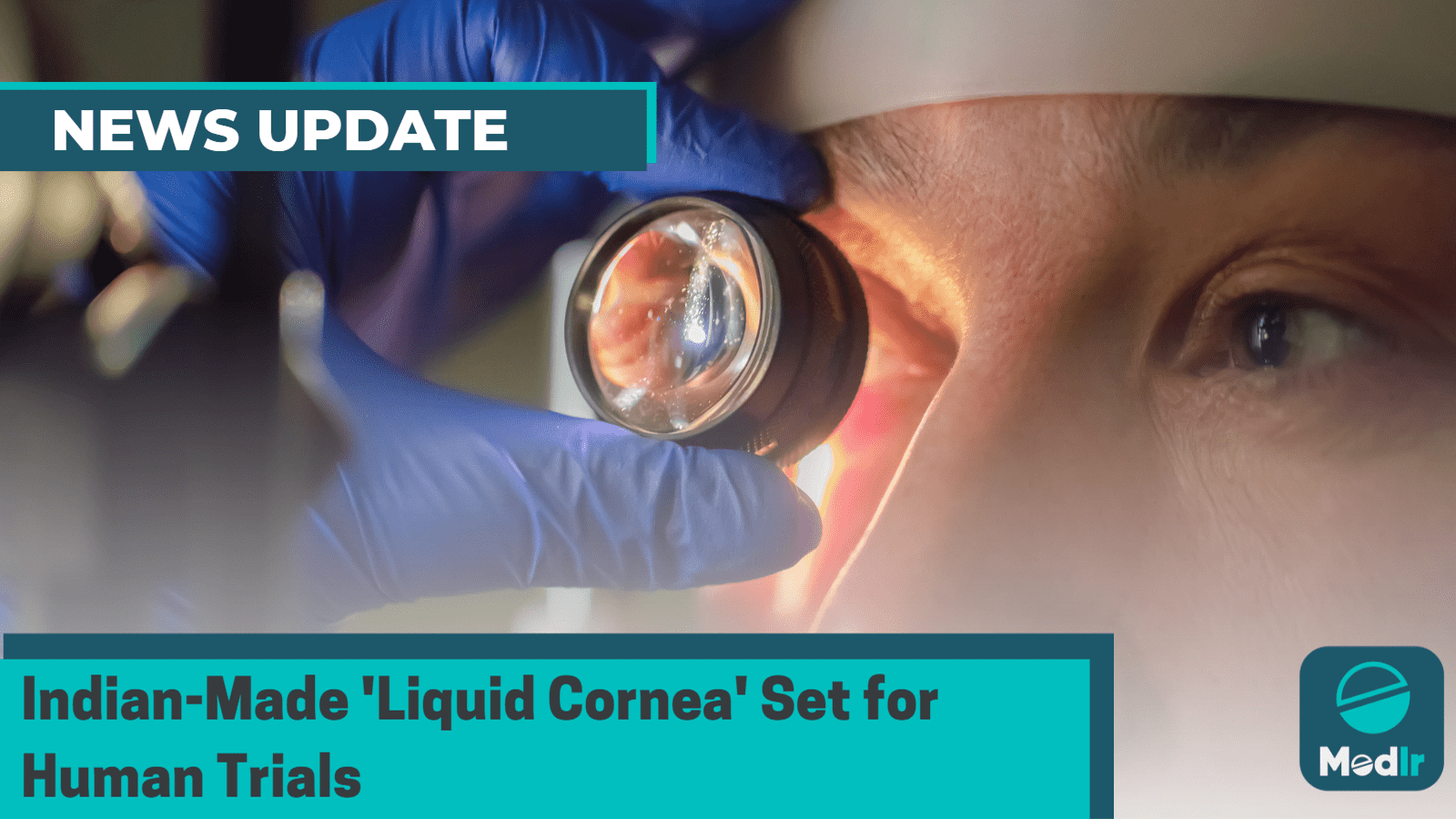Indian-Made 'Liquid Cornea' Set for Human Trials
Written by Arushi Sharma
Indian doctors develop "liquid cornea" for treating corneal blindness, showing 80% success rate in animal tests, paving the way for human trials.

An innovative substance known as "liquid cornea" has been developed by a group of doctors in India and has demonstrated promising results in animal tests. With an 80 percent success rate in treating animals with corneal blindness, the liquid cornea shows great potential.
Consequently, the doctors are preparing to proceed with human trials.
The 'liquid cornea' is the brainchild of Bengaluru-based Pandorum Technology in collaboration with Dr. Shroff's Charity Eye Hospital. Its objective is to provide the gift of sight to millions of people suffering from corneal blindness, a visual impairment resulting from corneal diseases.
Dr. Virender Sangwan, Director of Innovation at Dr. Shroff's Charity Eye Hospital, stated that they will be seeking approval from the Drugs Controller General of India (DCGI) within the next three to four months. He also mentioned that the success rate observed in animal trials stands at approximately 80 percent, but the effectiveness in humans can only be determined once the trials commence. Dr. Sangwan emphasized that this pioneering technology is a first-of-its-kind development in India, created by an Indian company with the support of Indian hospitals, doctors, and scientists, all aimed at benefiting the Indian population.
The liquid cornea addresses the scarcity of corneas required for transplants, thereby reducing waiting lists and effectively eliminating corneal blindness. According to the World Health Organization (WHO), corneal opacity accounts for over 4 percent of global blindness, leading to more than 1.5-2 million cases each year. In India alone, there is a significant burden of bilateral (1.2 million) and unilateral (5-6 million) corneal blindness cases, with an annual increase of 30,000 new cases.
Dr. Sangwan explained that the liquid cornea is created in the laboratory using biomaterials such as collagen, protein, and peptides, which are the body's building blocks. It belongs to a class of products powered by tissue-specific exosomes and tissue-mimetic biomaterials, promoting the regeneration of a healthy and functional cornea.
When applied as liquid drops on the cornea, the substance solidifies within 10 minutes using visible light and integrates with the patient's cornea. Within the solidified matrix, the biopolymer acts as a sacrificial material, facilitating sustained release of exosomes that suppress ulceration, inflammation, fibrosis, and aid in nerve regeneration and restoration of corneal thickness.
Dr. Sangwan stated-
"A bio-printed cornea or liquid cornea will allow patients to regrow damaged corneas with minimal surgical intervention. There is no need for stitching or donor corneas, as the liquid fills the gap like a mold."
Presently, cornea transplants rely on cadaver donors, but approximately 40 percent of donated corneas do not meet the required standards for transplantation.
Dr. Sangwan explained -
"The advantage of a bioengineered cornea is that it eliminates the possibility of rejection since it is not sourced from another human being. Moreover, bioengineered corneas are not limited in supply like donor corneas,"
Regarding affordability, Dr. Sangwan stated that it is premature to discuss the cost for the general public, but their goal is to ensure that it is not more expensive than a traditional corneal transplant, which starts at approximately Rs 42,750 in India.
Following the observation of results in adult patients, the trials will expand to include pediatric patients. The aim is to utilize the liquid cornea to address various types of corneal scars caused by infections and injuries.